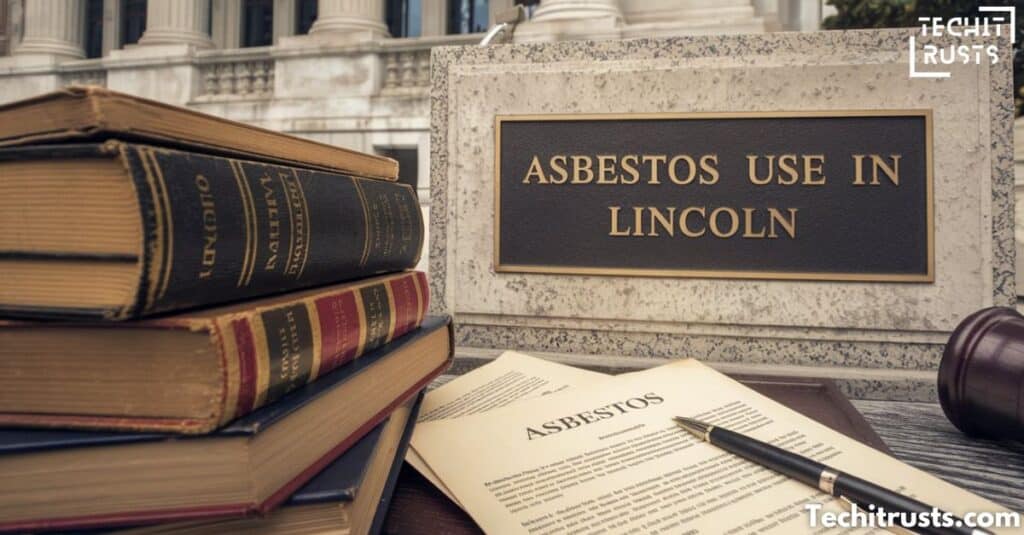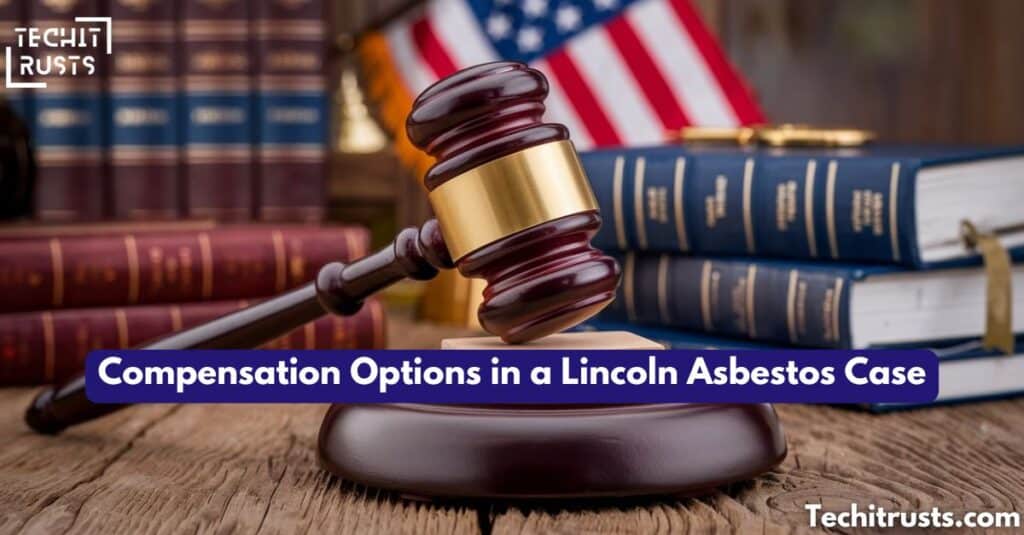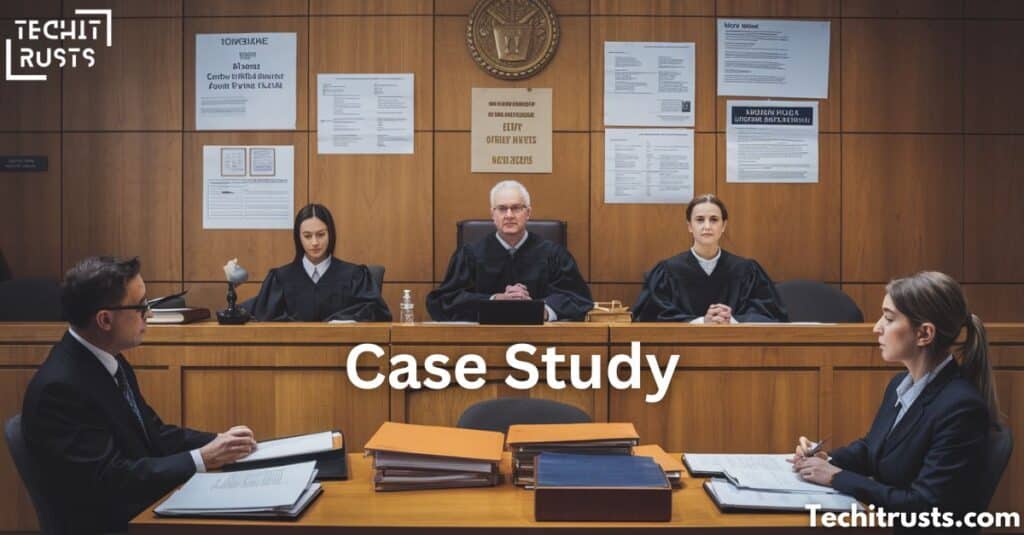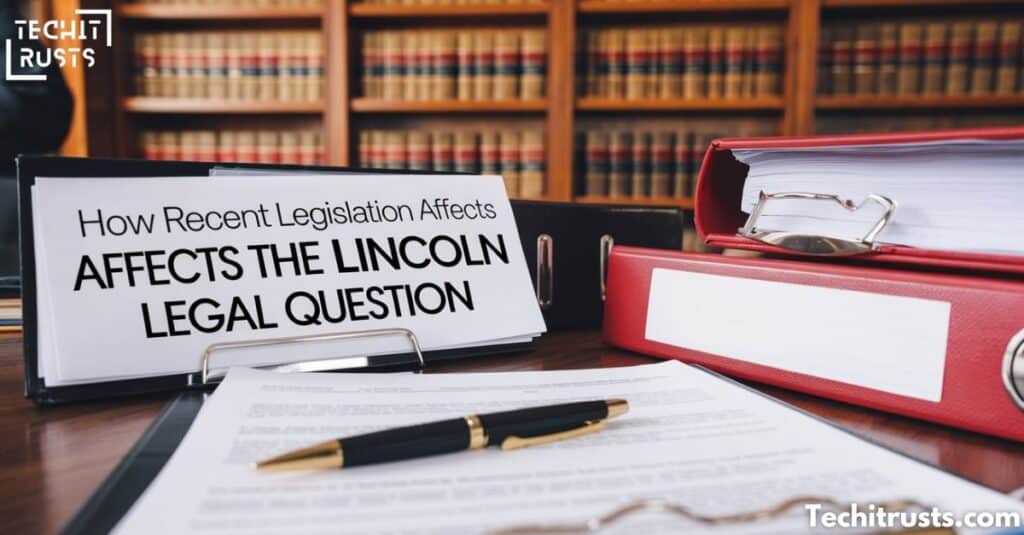The use of asbestos in various industries has led to an ongoing public health crisis, and Lincoln has been no exception. Asbestos, a naturally occurring mineral once celebrated for its heat resistance and durability, is now known to cause deadly illnesses such as mesothelioma, asbestosis, and other asbestos-related health conditions.
These diseases often develop decades after exposure, making it difficult for victims to connect their illnesses with asbestos exposure. When they do, the legal process is complex, and many face the daunting task of seeking compensation through litigation.
This comprehensive guide will address the key aspects of the Lincoln asbestos legal question, including how to navigate asbestos litigation, how to collect evidence, what compensation options are available, and the role of local statutes of limitation.
Whether you or a loved one has been affected by asbestos exposure in Lincoln, this article will provide the essential information you need to take action.
The History of Asbestos Use in Lincoln
Lincoln, like many cities, has a rich industrial history where asbestos was heavily utilized in construction, manufacturing, and shipbuilding. The material was often used in building insulation, pipes, roofing, and even car brakes due to its fire-resistant and insulating properties.

Unfortunately, the dangers of asbestos exposure were not fully understood until much later, and many workers and their families unknowingly inhaled the dangerous fibers.
Today, asbestos-related diseases such as mesothelioma and asbestosis continue to surface, often years or even decades after the exposure occurred. This delayed onset makes it particularly difficult to pinpoint the source of exposure and initiate legal action, but it’s a necessary step for victims seeking compensation for medical expenses, lost wages, and emotional distress.
Common Legal Challenges in a Lincoln Asbestos Case
Pursuing compensation for asbestos-related health issues in Lincoln presents several hurdles. The following are some of the most common legal challenges faced by those seeking justice.
Proving Asbestos Exposure
Proving asbestos exposure is one of the most critical aspects of a successful asbestos lawsuit. Plaintiffs must demonstrate that they were exposed to asbestos-containing materials and that this exposure directly led to their illness.
The challenge here is the latency period; it can take 20-50 years for mesothelioma or asbestosis to manifest, which means that workplace records, product documentation, and eyewitness testimony may be scarce.
In Lincoln, many industries used asbestos-containing products, which means that identifying the exact source of exposure may require extensive investigation. Employees working in older buildings, factories, or shipyards are particularly vulnerable.
Moreover, secondary exposure—where family members of workers were exposed to asbestos brought home on clothing—adds another layer of complexity.
Multiple Defendants and Bankrupt Companies
Asbestos exposure cases frequently involve multiple defendants. Manufacturers of asbestos-containing products, construction companies, and property owners may all be held liable. Furthermore, many of the companies responsible for asbestos exposure have declared bankruptcy to avoid paying settlements.

Fortunately, asbestos bankruptcy trust funds were established to compensate victims. These trusts, while beneficial, add an additional layer of complexity to the legal process, as claimants must navigate trust fund guidelines and submit extensive documentation to prove their case.
Statutes of Limitation in Lincoln
Another significant legal challenge is the statute of limitations. In Lincoln, like in other parts of the U.S., the law restricts the timeframe within which a victim can file a claim. The statute of limitations typically starts at the time of diagnosis for asbestos-related diseases, not at the time of exposure. However, the window to file a lawsuit may still be limited to a few years.
How to Address a Lincoln Asbestos Legal Question: A Step-by-Step Approach
Navigating the Lincoln asbestos legal process can be intimidating, but by following a structured approach, you can ensure that your case is handled efficiently and effectively.
Step 1: Seek Medical Diagnosis
The first step in any asbestos-related case is obtaining a formal diagnosis of an asbestos-related disease, such as mesothelioma or asbestosis. This diagnosis must come from a medical professional and should include all relevant medical records, test results, and treatment plans. Without medical documentation, it is impossible to prove the presence of an illness caused by asbestos exposure.
Step 2: Gather Employment and Exposure History
Once a diagnosis has been made, it is essential to gather detailed information regarding the source of your asbestos exposure. This may include:
- Employment records: If you worked in industries known for asbestos use, such as construction, shipbuilding, or manufacturing, obtain detailed records of your job duties, work locations, and the timeframes during which you were employed.
- Witness statements: Co-workers or supervisors may be able to confirm the presence of asbestos-containing products in your workplace.
- Documentation of asbestos use: This could include product labels, invoices, or photographs showing asbestos materials in your work environment.
Step 3: Consult with an Asbestos Attorney
After collecting your medical and employment records, it is crucial to consult with an asbestos attorney who specializes in handling asbestos litigation in Lincoln. These attorneys have the expertise required to assess your case and help you determine the most appropriate legal strategy. Your attorney will guide you through the process of filing a lawsuit or trust fund claim, advise you on compensation options, and negotiate on your behalf.
Step 4: File Your Lawsuit or Trust Fund Claim
Once your attorney has evaluated your case, they will help you decide whether to file a personal injury lawsuit, a wrongful death claim (in the case of a deceased victim), or pursue compensation through an asbestos trust fund. In Lincoln, many asbestos victims have successfully filed claims with asbestos trust funds, especially when the companies responsible for their exposure have gone bankrupt.
Compensation Options in a Lincoln Asbestos Case

Victims of asbestos exposure in Lincoln have several avenues for obtaining compensation. Whether through settlements, trial awards, or trust fund claims, asbestos litigation seeks to provide victims with financial relief for the harms caused by asbestos-related diseases.
Types of Compensation Available
- Medical Expenses: Compensation can cover the cost of diagnosing and treating asbestos-related health conditions like mesothelioma and asbestosis. This includes surgery, chemotherapy, radiation, and palliative care.
- Lost Wages: Many asbestos victims are unable to work due to their illness. Compensation for lost wages can include both past wages and future lost earning capacity.
- Pain and Suffering: Asbestos diseases cause significant physical pain and emotional distress. Compensation for pain and suffering is designed to provide victims with additional relief for the intangible harm caused by their illness.
- Funeral and Burial Costs: In cases where asbestos exposure has resulted in death, families may seek compensation for funeral and burial expenses.
- Wrongful Death: Families of deceased asbestos victims may file a wrongful death lawsuit seeking compensation for the loss of companionship, financial support, and other damages resulting from the death.
Asbestos Trust Funds
As mentioned earlier, asbestos trust funds have been set up to compensate victims when the companies responsible for their exposure have declared bankruptcy. These trust funds operate under a specific set of rules, and the claims process can be complicated.
Trust fund payouts are often lower than what could be obtained through litigation, but they offer a guaranteed source of compensation. Lincoln asbestos attorneys are well-versed in filing claims with these trusts and can help victims navigate the process.
Case Study: A Successful Lincoln Asbestos Trust Fund Claim
John D., a former construction worker in Lincoln, was diagnosed with mesothelioma in 2019. John had worked in various job sites throughout the city where asbestos-containing insulation and pipes were used. His attorney successfully traced his exposure to several companies that had declared bankruptcy.

Through trust fund claims, John received $450,000 in compensation, which covered his medical bills, lost wages, and pain and suffering. Though his payout was smaller than a potential trial award, it provided his family with much-needed financial stability during his illness.
The Role of Evidence in Resolving a Lincoln Asbestos Legal Question
The success of an asbestos lawsuit or trust fund claim depends on the strength of the evidence presented. Proper asbestos evidence collection is critical for establishing liability and proving that asbestos exposure led to the victim’s illness.
Key Types of Evidence
- Medical Records: These documents confirm the diagnosis of an asbestos-related disease, such as mesothelioma or asbestosis.
- Employment Records: Employment history helps establish where and when the asbestos exposure occurred. This is especially important for victims with long careers in industries where asbestos was used.
- Product Identification: Identifying the specific asbestos-containing products that caused the exposure can strengthen the case. Product labels, invoices, or catalogs can provide this information.
- Witness Statements: Testimony from co-workers, supervisors, or family members who can verify the asbestos exposure and its impact.
- Expert Witness Testimony: Experts in occupational safety, medicine, or toxicology may be called to testify about the effects of asbestos exposure and the likelihood that it caused the illness in question.
Choosing the Right Attorney for a Lincoln Asbestos Legal Case
Given the complexity of asbestos litigation, it’s vital to choose the right attorney to represent your case. Asbestos attorneys in Lincoln specialize in handling these types of lawsuits and are well-versed in local laws, trust fund claims, and the specific needs of asbestos victims.
What to Look for in an Asbestos Attorney
- Experience: Choose an attorney with a proven track record of handling asbestos cases, both in court and through trust fund claims.
- Local Knowledge: An attorney familiar with Lincoln asbestos legal procedures will have insight into local regulations, courts, and experts that can strengthen your case.
- Compassionate Advocacy: Asbestos victims are often dealing with severe health conditions, so it’s important to work with an attorney who is empathetic and committed to fighting for your rights.
- No Upfront Fees: Most asbestos attorneys work on a contingency fee basis, which means they only get paid if you win your case or secure a settlement. This arrangement ensures that victims can pursue justice without worrying about legal fees.
How Recent Legislation Affects the Lincoln Asbestos Legal Question

Recent changes in state and federal laws have had a significant impact on asbestos litigation. For victims in Lincoln, understanding these legislative changes is critical to navigating the asbestos legal process effectively.
Federal Legislation and the EPA
The U.S. Environmental Protection Agency (EPA) continues to regulate asbestos use under the Toxic Substances Control Act (TSCA). While the EPA has implemented a partial ban on asbestos, certain uses remain legal, and the agency has been criticized for not fully banning the substance. However, ongoing litigation and lobbying efforts aim to push for stricter regulations.
State-Specific Laws in Nebraska
Nebraska has its own set of laws governing asbestos litigation. State courts are responsible for handling many asbestos-related cases, and Nebraska’s regulations surrounding occupational asbestos exposure and worker protections are essential for local cases.
Nebraska’s Department of Environmental Quality (NDEQ) enforces asbestos abatement procedures and ensures that asbestos is safely removed from public and private properties.
Statutes of Limitation and Their Effect on Lincoln Asbestos Cases
One of the most critical aspects of filing a lawsuit is understanding the local statutes of limitation that govern asbestos cases. In Lincoln, Nebraska, the statute of limitations for filing an asbestos-related lawsuit typically begins when a victim receives a diagnosis of an asbestos-related disease.
- Personal Injury Claims: In Nebraska, the statute of limitations for personal injury claims related to asbestos exposure is generally four years from the time of diagnosis.
- Wrongful Death Claims: For wrongful death claims, family members must file within two years of the victim’s death.
Failing to file within the statute of limitations can result in losing the right to pursue compensation, so it’s crucial to act promptly.
Settlement vs. Trial: Evaluating Your Options in a Lincoln Asbestos Legal Case
When pursuing compensation for asbestos exposure in Lincoln, victims often face a choice between settling the case out of court or going to trial. Both options have pros and cons, and the right choice depends on the circumstances of your case.
Settlement
Settling an asbestos case before trial can provide faster financial compensation and eliminate the risk of losing in court. Most asbestos lawsuits are settled out of court, as defendants seek to avoid the negative publicity and high costs associated with a lengthy trial.
- Advantages of Settling: Quicker resolution, less stress, guaranteed compensation.
- Disadvantages of Settling: The payout may be lower than what could be awarded at trial.
Trial
Going to trial can result in a larger payout if the jury sides with the plaintiff. However, trials are more expensive, time-consuming, and involve the risk of losing the case and receiving no compensation.
- Advantages of Going to Trial: Potential for higher compensation, opportunity to hold defendants publicly accountable.
- Disadvantages of Going to Trial: Longer process, increased legal costs, risk of losing.
Conclusion
If you or a loved one has been affected by asbestos exposure in Lincoln, understanding the legal process is essential to pursuing the compensation you deserve. By working with experienced asbestos attorneys, gathering strong evidence, and acting within the statute of limitations, you can take steps to hold negligent companies accountable and secure financial compensation for the harm caused by asbestos-related diseases.
As the Lincoln asbestos legal question continues to evolve, staying informed about recent legislation, compensation options, and the role of evidence in litigation will empower victims and their families to make informed decisions.

Ashi is the site admin for “techitrusts.com” and specializes in writing within the journal category. If you need more detailed information about his background or work, feel free to ask!